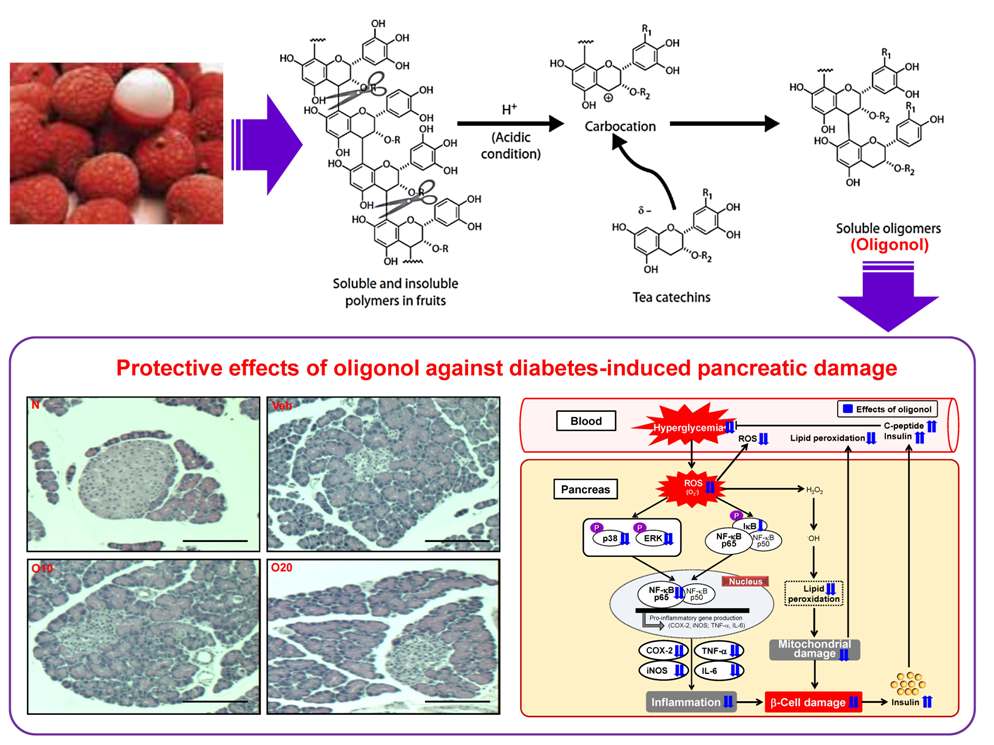Oligonol is a low-molecular-weight polyphenol derived from lychee fruit. This study was conducted to examine whether oligonol has an ameliorative effect on diabetes-induced pancreatic damage via oxidative stress-induced inflammation. Oligonol was orally administered at 10 or 20 mg/kg body weight/day for 10 days to streptozotocin-induced diabetic rats, and changes in serum glucose, C-peptide, insulin, reactive oxygen species (ROS), and thiobarbituric acid-reactive substance (TBARS) levels as well as body weight and food and water consumption were assessed. Furthermore, rat pancreases were analyzed for weight, ROS generation, TBARS level, insulin content, and protein expressions of phosphor (p)-p38, p-extracellular-signal regulated kinase 1/2, p-inhibitor of nuclear factor kappa Bα, nuclear factor-kappa Bp65, cyclooxygenase-2, inducible nitric oxide synthase, tumor necrosis factor-α, and interleukin-6. Markers of diabetes were shown to be decreased by oligonol administration and histological damage in the pancreas was also ameliorated. These results indicate that oligonol exerts antidiabetic activities, which may be mediated via antioxidative, stress-related, anti-inflammatory signaling.

